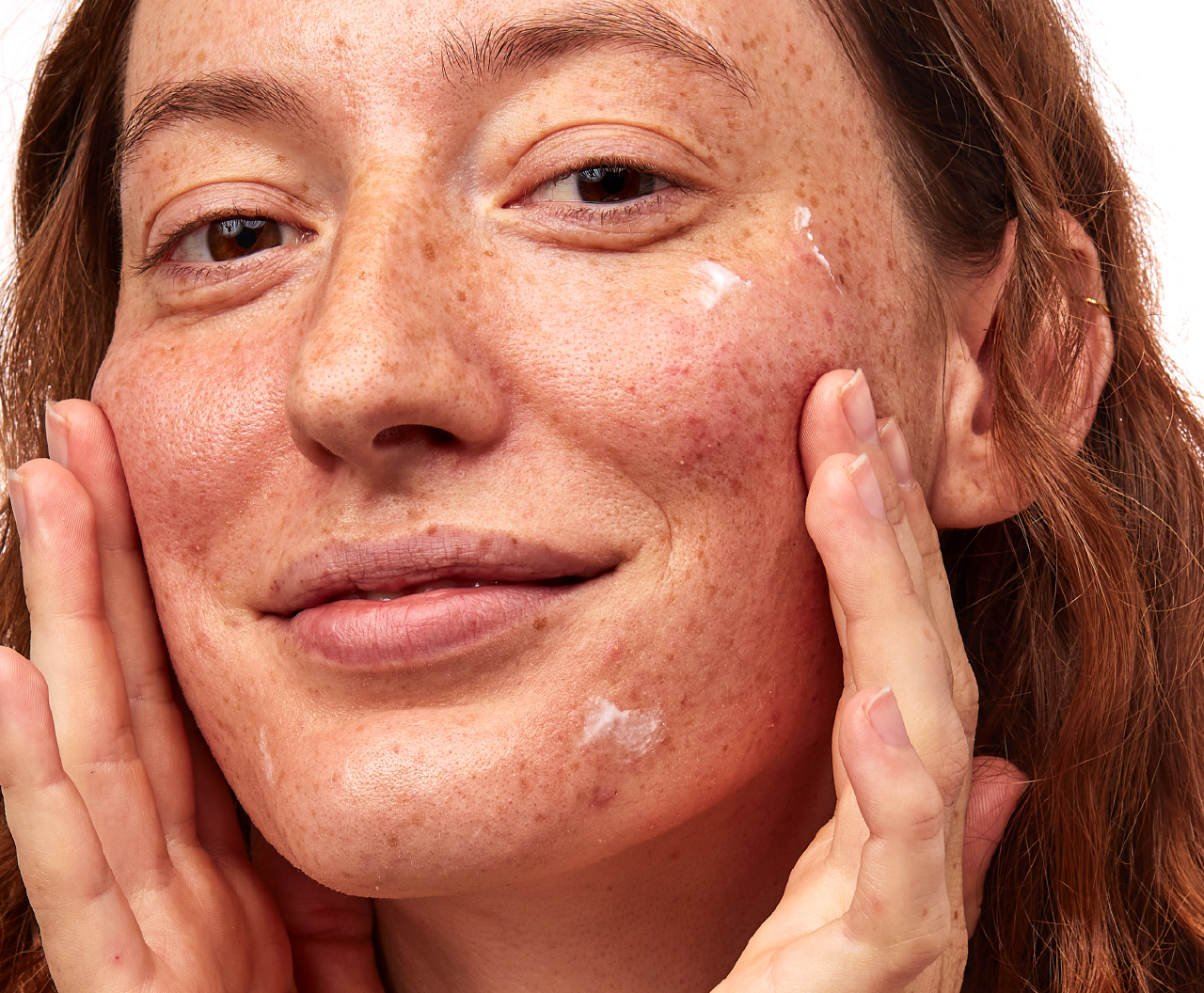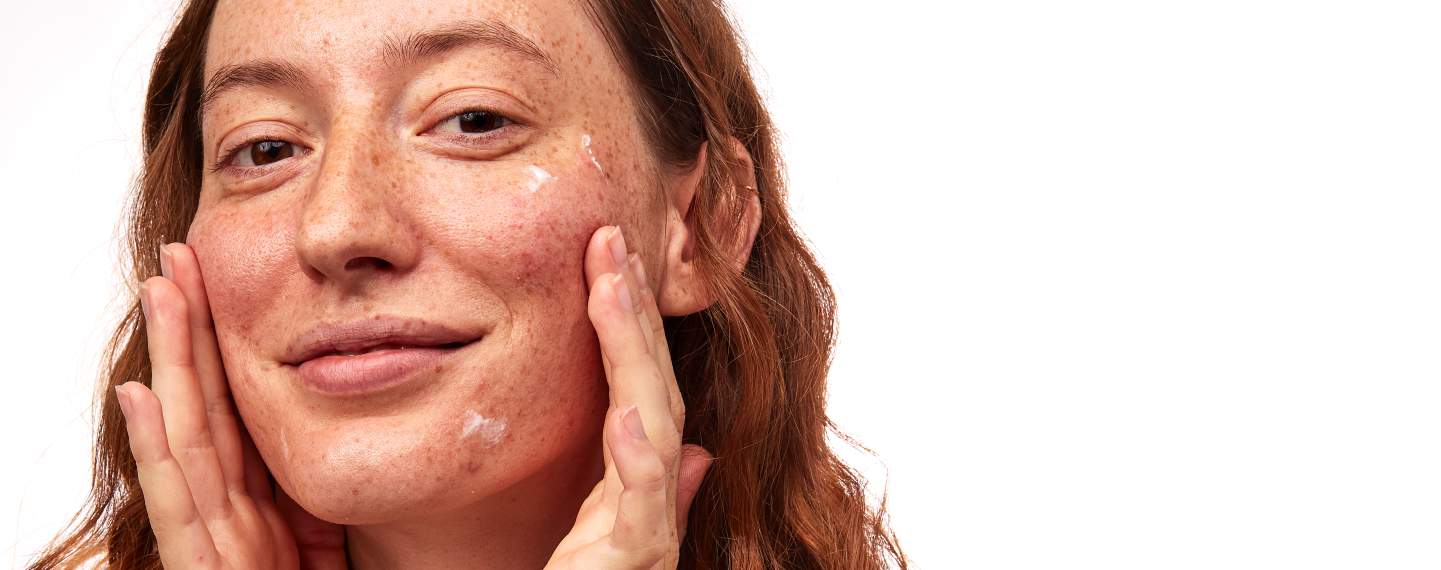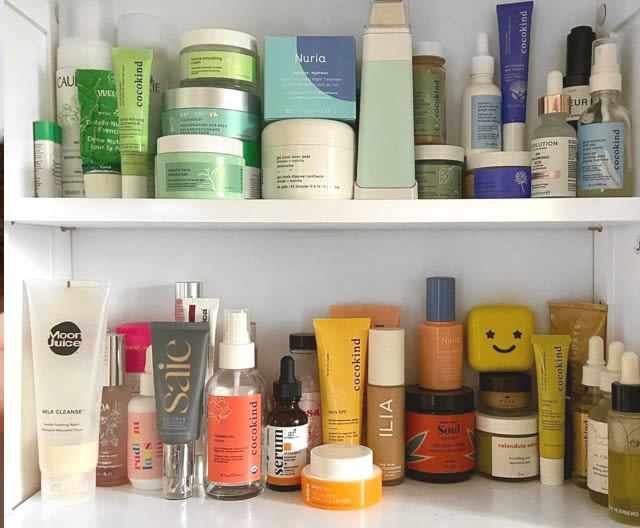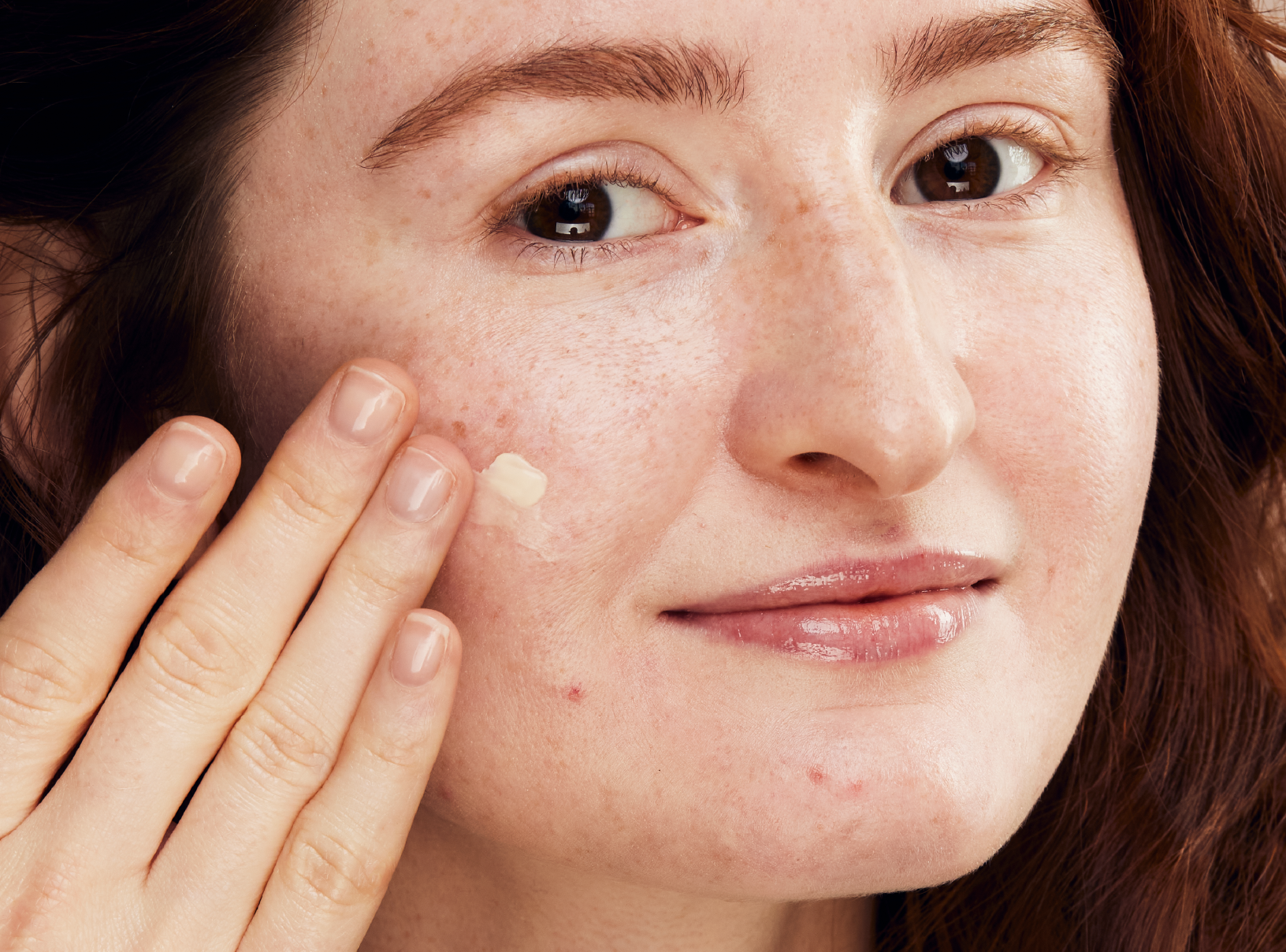General
Acne... Or Rosacea?


SHARE
General
Acne... Or Rosacea?
Medically reviewed by Aimee Paik, MD
Written by Apostrophe Team
Last updated 11/2/2022
Redness, bumps, and inflammation: make you think acne, right? Not always! These symptoms are common signs of acne, but they can also be signs of rosacea. Despite their similarities, these two skin concerns often need different types of treatment. If your acne isn’t clearing with traditional treatments, you may actually be suffering from rosacea!
What does rosacea look like?
Acne vulgaris, what we typically think of when we think of acne, is caused by clogged pores and manifests in a variety of ways (whiteheads, blackheads, closed comedones, and cystic bumps). These kinds of acne breakouts can happen anywhere on the face, shoulders, and back. On the other hand, rosacea2 primarily manifests as redness centered on the face with small, red spots and sometimes pustules (notably, you will not see any whiteheads, blackheads, or nodules). It can also affect the eyes and make them red, sore, or tired. Rosacea is most common in those with very fair skin and blue eyes, while acne vulgaris affects all types of skin.
People with rosacea also have higher skin sensitivity, meaning skin is likely sensitive to makeup, sunscreen, and creams that may cause burning or stinging. Sun exposure and hot or spicy foods will also cause you to redden and flush – not ideal if you want to keep your blush in your makeup bag!
What causes rosacea?
The exact cause of rosacea is unknown, but researchers believe it is a mix of genetic, environmental, vascular, and inflammatory factors. Sun damage seems to play a role in contributing to and exacerbating rosacea (always, always, always wear SPF!), as does your body’s innate immune response. Some people seem to exhibit an immune response to microbes that causes blood vessels to dilate, which in turn causes the tell-tale flushing and redness of rosacea. If left untreated, rosacea can lead to more serious symptoms like the thickening and hardening of skin on the nose and eyelids, or even persistent swelling in the upper portion of the face (also known as Morbihan disease).
What can I do to treat rosacea?
Anti-inflammatory ingredients are often the most useful when treating rosacea. These help to calm the skin and reduce the redness that is so characteristic of this skin concern. Dermatologists may prescribe azelaic acid as a topical treatment in milder cases. For more persistent rosacea, an antibiotic with anti-inflammatory properties (like doxycycline or minocycline) is another useful tool dermatologists have at their disposal. These antibiotics can be used to treat acne, but their anti-inflammatory action is also helpful against rosacea.
Lifestyle changes can also be helpful! Staying on top of sun protection when you venture outside and keeping away from potential triggers like spicy food or alcohol can reduce the severity of flare ups. Using water-based as opposed to oil-based skincare and makeup products can also help keep skin calm and protect sensitive skins.
If you’re unsure whether or not you’re dealing with a case of rosacea, it’s always best to talk to a dermatology provider! They can tell you exactly how to manage your skin and prescribe any medication you may need.
1. Morbihan disease | DermNet NZ. Dermnetnz.org. https://www.dermnetnz.org/topics/morbihan-disease/. Accessed August 29, 2019. 2. Rosacea | DermNet NZ. Dermnetnz.org. https://www.dermnetnz.org/topics/rosacea/. Accessed August 29, 2019. 3. Sutaria A, Schlessinger J. Acne Vulgaris. StatPearls. https://www.ncbi.nlm.nih.gov/books/NBK459173/. Published 2019. Accessed August 29, 2019.
Like what you just read? Sign up for our email list to get the scoop on skincare science delivered straight to your inbox.

General
What is milia?
What is milia? Today, we’re jumping into one type of bump that you may have heard about most commonly in infants — milia.
Read More
General
Best moisturizer for acne-prone skin
If you have combination acne-prone skin, figuring out which moisturizer is best for your skin might be tough. In this guide, we break down the best moisturizer for combination, acne-prone skin.
Read More
General
How to build a face care routine
As you get into skincare, it might seem overwhelming, especially trying to figure out the order you're supposed to apply products in. Below, we detail how to build a face care routine for your skin!
Read More
